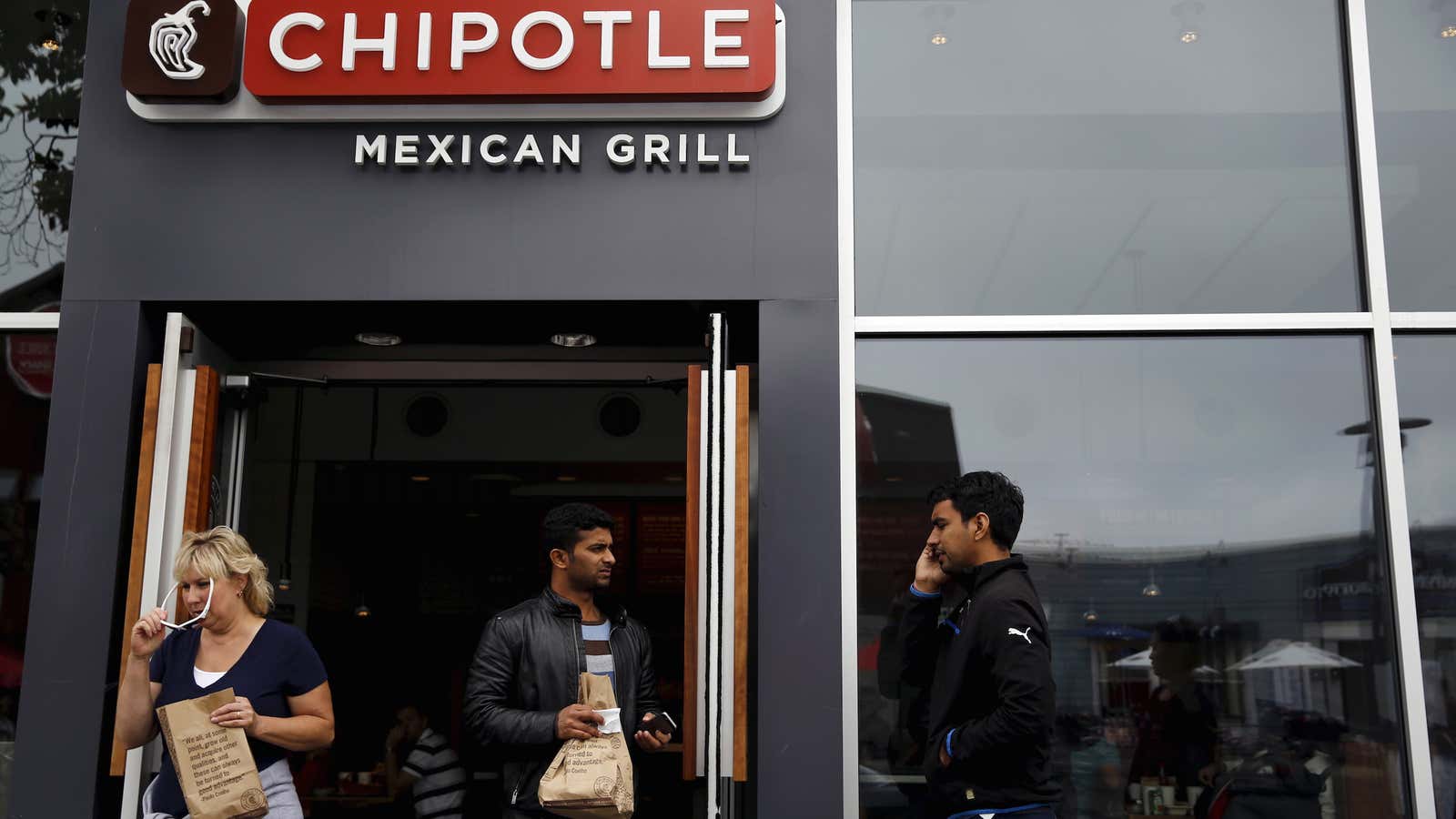Behind the organized chaos of a Chipotle mid-lunch rush is a sophisticated management ethos, of a type more often associated with tech giants or august industrial conglomerates than fast casual burrito restaurants. And while founder Steve Ells is the famous champion of Chipotle’s natural and sustainable food focus, it’s the lesser-known co-CEO Monty Moran who devised the company’s intense management system.
“It is what I spend all of my time on,” Moran told Quartz.
Many companies in America have annual reviews. But few match the Chipotle’s level of scrutiny.
In addition to tracking the things you might expect, like food quality, food cost, and line speed (a particular obsession of the company), each of the company’s store managers is put under a quarterly microscope: the company’s 39-point “diagnosis and plan tool.” At its core, it’s a very granular checklist of “negative themes” that the company expects managers to avoid.
Based on what boxes get checked during evaluation by a field leader, each manager under review gets a detailed and evolving guide for how to improve and become a more highly paid “restaurateur,” one of a select and small group of store managers that runs a top performing store, and passes a grueling evaluation, which includes a personal interview of them and their employees by Moran. “Literally every manager has a clear written plan that’s delivered every quarter,” Moran says.
Moran has spoken about the tool previously on earnings calls, calling it “the most important tool” for field leaders’ success earlier this year. But he revealed more specifics in an interview with Quartz. Here are examples of the negative things that appear on the checklist, as recounted by Moran:
- The vision is not clear to employees or they are not inspired by it.
- People don’t really know what a restauranteur is or the definitions of a top performer.
- People aren’t focused on making the people around them better, and are therefore not truly top performers.
- Low performers are allowed to remain on a team, dis-incentivizing the rest of the team.
- New employees are not being set up for success in the restaurant with proper training and guidance.
- Managers are not sitting down regularly with their crew people to have one on one conversatoins
- The managers are not connecting deeply enough with their people to create encouraging environments.
- People are not aware of their opportunities at CMG or how they can advance
The idea, essentially, is that a well-run restaurant follows from well-managed and highly-engaged teams, Moran says.
The restaurateur program’s origin is described in more detail here, but it is part of a larger effort to find and encourage the best Chipotle managers. The primary metric is the degree to which they improve their crew members, and the rewards are substantial: restaurateurs earn well in excess of $100,000, and get a $10,000 bonus every time they train an employee up to general manager level.
That might make this sort of intensity worth it in the end.
